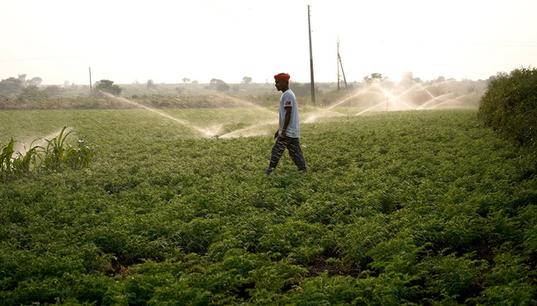After a year of unprecedented challenge from the COVID-19 pandemic, World Water Day 2021 is an opportunity to look forward with hopeful vision for the future. As the Secretariat to the Under2 Coalition, we work to harness the potential of states and regions who are in a unique position to accelerate climate action. They do this by developing and implementing climate laws – with effects on air quality, transport, energy, and buildings – and influencing national governments to set more ambitious climate goals.
Global emissions from heavy polluting industries like transport, energy and industry are increasing the effects of climate change, which in turn is causing erratic, and more unpredictable rainfall. Demand for water is increasing around the world and climate change is putting added stress on water supplies by making wet regions wetter and dry regions drier. According to UNESCO, two billion people are currently living in countries experiencing high water stress, and the number of people living in areas of potential water scarcity is expected to rise from 3.6 billion worldwide (nearly half the global population) to between 4.8-5.7 billion by 2050.
Our 2020 Global States and Regions Annual Disclosure saw 89% of states and regions report water security impacts as serious or extremely serious. It also revealed that 108 states and regions experienced 781 environmental and socio-economic impacts of climate change and 243 impacts related to water security. These range from more intensive rainfall in Rio de Janeiro, Brazil, and hotter summers in Abruzzo, Italy, to increased flash flooding in KwaZulu-Natal, South Africa, and more frequent droughts in South Australia.
Global States and Regions Annual Disclosure 2020.pdf
Size: 13.53 MB
Date added: 18/03/21
A quarter of the world’s population live in countries facing extremely high water stress
Like many countries and regions, South Africa is feeling the effects of climate change and water scarcity. Starting in 2015, the Western Cape experienced its worst drought in decades; it lasted three years for much of the province - with some areas still experiencing water constraints today - and threatened the livelihoods of the local population and their water security. At its peak, the City of Cape Town was less than 30 days away from running out of water. When COVID-19 hit, many areas were still recovering from the long-lasting consequences of the drought – this continues to exacerbate the impact of the pandemic and is making the recovery process more complex.
“In an ongoing effort to address our vulnerability to climate change and water scarcity, the Western Cape Government has developed a set of interventions under a Sustainable Water Management Plan. These interventions range from an integrated drought and water response plan (one that includes demand management and augmentation projects) to a dedicated program of alien vegetation clearing and environmental rehabilitation amongst others.”
“In an ongoing effort to address our vulnerability to climate change and water scarcity, the Western Cape Government has developed a set of interventions under a Sustainable Water Management Plan. These interventions range from an integrated drought and water response plan (one that includes demand management and augmentation projects) to a dedicated program of alien vegetation clearing and environmental rehabilitation amongst others.”
To help build climate-resilience, representatives from over 10 different government departments and directorates from Western Cape Government and the City of Cape Town took part in six collaborative workshops hosted by the Climate Pathway Project. The project supports states and regional governments to develop a transformational ‘pathway’ to reduce emissions.
The Under2 Coalition is also working with Indian states to improve climate resilience and address water demand. In Nagaland, India, for example, village communities rely on natural springs for their domestic and agricultural activities. With an exponential increase in population and anthropogenic activities since 1980s, these mountain springs have been drying up leading to severe water shortages. To tackle this, the state’s Department of Land Resources initiated a pilot project to rejuvenate drying and dying natural springs. They used engineering, vegetative and social measures to recharge underground aquifers, leading to an increase in water supply for the local population.
Another region which is currently suffering from water shortages is Comunidad de Madrid, Spain. As a result of ongoing water stress, collection of water in the region’s reservoirs has dropped by almost 20% in the last 30 years. The water situation in Madrid has been described as a ‘perfect storm’ – with the growing population leading to increased water consumption, coupled with a reduction in rainfall which is exacerbated by climate change. To tackle the problem, the region has been working to implement new policies and technologies that ensure supply meets demand.
“We work to continue guaranteeing water supply excellence to the citizens of our region. We have efficient sanitation systems linked to renewable energies. Also, our priority is to take care of our ecosystems and natural resources, in order to interconnect our territory and continue with our commitments to reduce the emissions and implement the goals of the 2030 Agenda.”
“We work to continue guaranteeing water supply excellence to the citizens of our region. We have efficient sanitation systems linked to renewable energies. Also, our priority is to take care of our ecosystems and natural resources, in order to interconnect our territory and continue with our commitments to reduce the emissions and implement the goals of the 2030 Agenda.”
Water shortages, droughts and floods are already impacting vulnerable communities around the world. States and regions must invest in sustainable infrastructure and green energy to withstand climate impacts and ensure a just transition. The Under2 Coalition is using the power of collective leadership to curb harmful emissions in high polluting sectors, while also pulling together to adapt to the impacts of climate change.
We see the 2020s as the climate decade. The decisions taken now will determine what our emissions will be in the decades to come and we must work together as we emerge from COVID-19 to achieve a green and just recovery.
